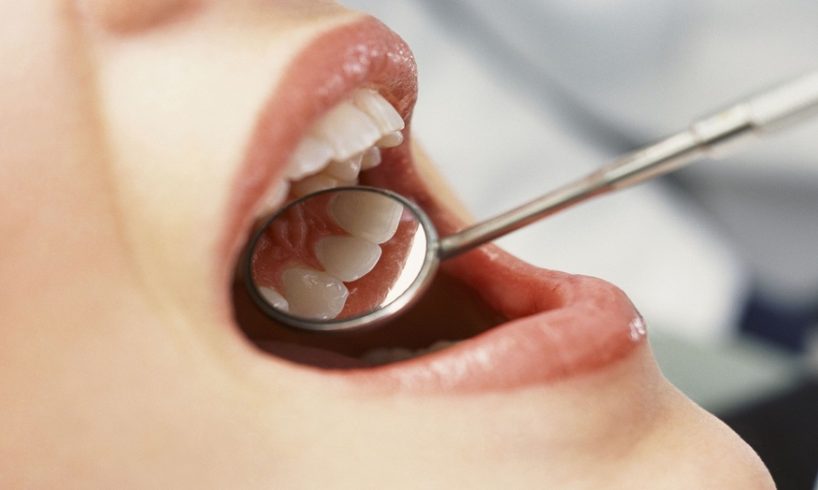
The data is increasingly worrying. The number of people suffering from a disorder related to eating behavior – anorexia and bulimia- continues to increase in all developed countries.
Despite the difficulty in obtaining a totally reliable percentage, since not all cases are treated or listed in any registry, it is estimated that anorexia and bulimia affect more than 400,000 young people and adolescents in our country.
And is that although no sex or age group is totally safe from these diseases, statistics estimate that girls between 12 and 25 years are the most vulnerable public.
Consequences of anorexia and bulimia
None of the aforementioned diseases needs presentation. The prevalence of anorexia and bulimia in society means that their symptoms and the terrible consequences they cause are known to all of us.
Both disorders cause physical and psychological damage not only to those who suffer them, but also to those around them, especially their relatives.
In fact, in extreme cases, anorexia and bulimia have the worst consequence of the death of the person who suffers.
However, and in spite of the fact that in some cases these disorders show their worst side, fortunately the majority of people who undergo professional treatment recover.
At this point, it should be clarified that healing can not be associated solely with the restoration of body weight. Both anorexia and bulimia are psychiatric illnesses and should be treated as such.
Therefore, the total recovery of the patient goes through a long and complex treatment.
This includes, in addition to the recovery of the weight, a process that must have as objective the total self – acceptance of the person. Likewise, it will be fundamental to instill in the patient some healthy habits of life and to get him to have a responsible control over his diet.
How do anorexia and bulimia affect the health of the mouth?
The mouth is one of the parts of our body that suffers the most with anorexia and bulimia . This is mainly due to the act of vomiting and the state of malnutrition that characterize these eating disorders.
While anorexia consists of self-imposed excessive restrictions with food , bulimia is distinguished by compulsive eating and then vomiting.
However, when a person suffers from a disorder in eating behavior, it is common that these diseases do not occur in isolation. That is, anorexia and bulimia usually combine, alternate or succeed each other.
That said, we will explain what are the main consequences that cause anorexia and bulimia in the mouth, especially in the teeth:
Wear and tear on the teeth:
The wear on the teeth is caused mainly by the habit of vomiting. When this happens, the acids in the stomach reach the mouth through vomiting and the enamel of the tooth diminishes.
Although, initially, the part that suffers most is the internal face of the tooth , progressively the acid ends up damaging its entire surface. This causes the teeth to weaken and, therefore, losing size.
And, as the teeth become weaker and smaller, the chances of their breaking up increase
Hypersensitivity:
In addition, the loss of enamel caused by the action of acids causes the dentin – layer of the tooth – to be exposed, which causes a lot of sensitivity.
This sensitivity manifests itself especially when the tooth comes into contact with foods that are very cold, hot, acidic or contain large amounts of sugar. In addition, it is common for the person to feel discomfort with brushing.
Cavities:
The lowering of defenses due to malnutrition combined with the consumption of beverages with a high content of sugars create the favorable ground for the appearance of caries.
We refer to this type of drinks because of the habit that sufferers of anorexia and bulimia have of resorting to them to “fill the stomach”.
In addition to sugary sodas, people suffering from anorexia and bulimia are characterized by consuming a high amount of acidic drinks. As in the previous case, this is done because they are convinced that it helps them to have a greater feeling of fullness, and even to cause vomiting.
Receding gums:
It is common for patients suffering from bulimia to brush their teeth many times a day do they do not smell vomit. This action repeated many times, very aggressively and for many minutes at a time, can cause retraction of gums.
The retraction causes the root of the tooth to be uncovered, which generates hypersensitivity and which, in turn, is very unsightly.
Tooth loss:
The state of malnutrition that the patient is able to reach causes the body to not receive the nutrients it needs. This in the long term can cause osteoporosis , which is characterized by progressively weakening the bones of our body.
In the case of the mouth, osteoporosis directly attacks the maxillary bones that act as support for the tooth. And this progressive degeneration of the bones can cause the loss of the tooth, since it loses its clamping element.
Can the dentist warn of these diseases?
Due to his experience, knowledge and the level of detail with which he observes the teeth, the dentist is, in many cases, the first person to notice anorexia and bulimia in one of his patients.
Of all the signs we have detailed above, the clearest is the wear of the teeth.
There are other problems that can cause wear, such as bruxism or nocturnal gastric reflux. However, their signs are slightly different.
The main difference between the wear caused by bruxism and bulimia is that clenching or grinding the teeth results in regular wear and tear, while vomiting causes more irregular and pitted damage.
On the other hand, gastric reflux that occurs at night causes wear on the inside of the tooth, while bulimia ends up causing damage to the entire tooth surface.
Dental treatments for the recovered patient
Once the patient’s health has been restored, it will be advisable to go to the dentist in Dubai to assess the type of damage suffered by the teeth and its severity.
In this way, the dentist can determine which dental treatment is the most appropriate.
If, for example, the patient has caries, a treatment or another will be performed depending on the degree of involvement of the tooth structure.
In the case of a small caries, it will be sufficient to carry out a filling ( filling ) to eliminate it. However, in the event that the injury is too deep, it may be necessary to resort to endodontics.
There is also the possibility that anorexia and bulimia have caused wear or even loss of teeth.
In this case, and depending on the damage caused to the anatomy of the tooth, it will be necessary for the dentist to assess which is the most appropriate rehabilitation option: veneers, crowns or dental implants.
Finally, it is also very common for the patient to present gum retraction as a result of the aggressive brushing referred to above.
In this case, the solution would be to perform a gum graft. In this way, the dentist can insert tissue in the places where the root of the tooth is visible. This will also combat tooth sensitivity.
Having said that, it is important to reiterate that in order to carry out any of these treatments it is essential that the patient is fully recovered.
Although it is true that, as we have seen, the dentist can play a fundamental role for patients with anorexia and bulimia, it must be borne in mind that several professionals intervene in the recovery process.
Although we have already emphasized that, in many occasions, the dentist is the first to detect these disorders, its role is also very important once the patient has recovered.
Read more: 11 tips to follow for a healthy heart
Because you have all the advances in Conservative and Aesthetic Dentistry within your reach, you can return a healthy and attractive appearance to your teeth.
However, during the intermediate recovery process, the patient himself and other specialists who act, among others, at the psychiatric level, will play a greater role.
Once said professionals determine that the person is cured, the dentist can begin the treatment that returns to the patient the confidence lost in his smile.
